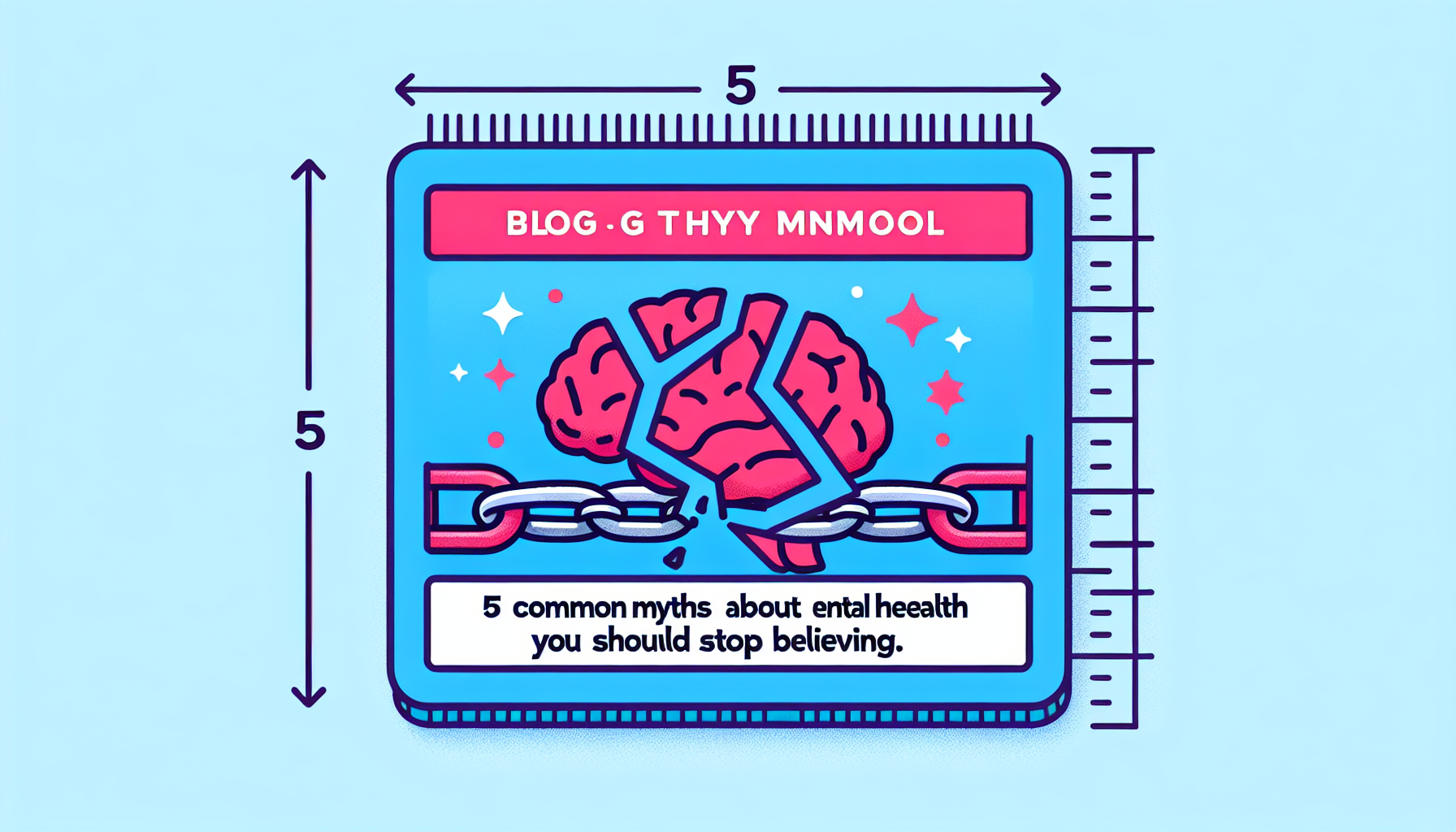Mental health is an essential aspect of our overall well-being, yet it remains shrouded in misconceptions and myths. These false beliefs can perpetuate stigma and prevent individuals from seeking the help they need. In this blog post, we will debunk five common myths about mental health that you should stop believing, paving the way for a more informed and compassionate understanding of this critical subject.

Myth 1: Mental Health Issues Are Rare
One of the most pervasive myths is the belief that mental health issues are uncommon and only affect a select few. The reality is that mental health conditions are more prevalent than many people realize. According to the World Health Organization (WHO), approximately 1 in 4 people will experience a mental health issue at some point in their lives. This means that mental health challenges are not isolated incidents but rather a common human experience that can affect anyone, regardless of age, gender, or background. Acknowledging the widespread nature of mental health issues can foster empathy and encourage open conversations about mental well-being.
Myth 2: Mental Health Issues Are a Sign of Weakness
Another damaging myth is the notion that mental health problems are a sign of personal weakness or a character flaw. This misconception can lead to feelings of shame and inadequacy for those struggling with mental health issues. In reality, mental health conditions are complex and can arise from a combination of genetic, biological, environmental, and psychological factors. Just like physical illnesses, mental health problems are not indicative of one’s strength or worth. By reframing the narrative around mental health as a health issue rather than a personal failing, we can create a more supportive environment for those in need.
Myth 3: Therapy Is Only for People with Severe Issues
Many individuals believe that therapy is only for those experiencing severe mental health crises or disorders. This myth can prevent people from seeking help for less severe but still impactful issues, such as stress, anxiety, or life transitions. In reality, therapy can be beneficial for anyone looking to improve their mental health, gain insights into their thoughts and behaviors, or work through everyday challenges. Mental health care is not just for emergencies; it can be a valuable resource for personal growth and self-improvement. Encouraging people to view therapy as a proactive tool rather than a last resort can help normalize seeking support.
Myth 4: Medication Is the Only Solution
While medication can be an effective treatment for many individuals facing mental health challenges, it is not the only solution. This myth can lead to an oversimplified understanding of mental health treatment, neglecting the importance of therapy, lifestyle changes, and holistic approaches. Mental health is multifaceted, and a combination of treatments—such as psychotherapy, mindfulness practices, exercise, and social support—can often yield the best outcomes. It’s crucial to recognize that each person’s journey is unique, and treatment should be tailored to individual needs and preferences. By broadening the conversation around mental health treatment options, we can empower individuals to explore various pathways to wellness.
Myth 5: People with Mental Health Issues Are Dangerous
The misconception that individuals with mental health issues are inherently dangerous or violent is not only inaccurate but also perpetuates stigma and fear. Research has shown that people with mental health conditions are more likely to be victims of violence than perpetrators. The media often sensationalizes mental health in relation to crime, reinforcing harmful stereotypes. In reality, mental health issues can manifest in many ways, and the majority of individuals with mental health conditions are not violent. Promoting understanding and compassion, rather than fear, can help break down barriers and foster a more inclusive society.
Conclusion
Debunking these common myths about mental health is crucial for creating a society that values and supports mental well-being. By understanding the realities surrounding mental health, we can reduce stigma, encourage open discussions, and promote the importance of seeking help. Remember, mental health is just as important as physical health, and everyone deserves access to the resources and support they need to thrive. Let’s work together to build a community where mental health is openly discussed and where individuals feel empowered to seek help without fear of judgment.
AI-Assisted Content Disclaimer
This article was created with AI assistance and reviewed by a human for accuracy and clarity.





Leave a Reply